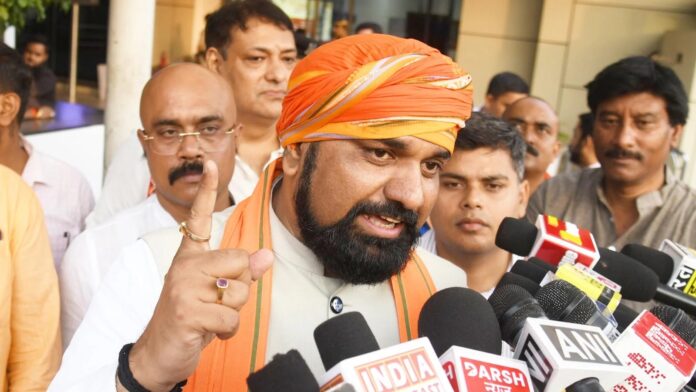
By Syed Khalique Ahmed
NEW DELHI—The hike in quota for scheduled castes, scheduled tribes and backward classes in Bihar that has, however, been rejected by the Patna High Court, has found support from unexpected quarters.
Bihar deputy chief minister Samrat Chaudhary, who is also state BJP chief, has announced to challenge the Patna High Court order setting aside the 65 percent quota for SCs, STs, and BCs fixed by the Nitish government, in the Supreme Court.
The reservation laws were amended by the Bihar government in November 2023 when Nitish Kumar was running the state government with the support of RJD of Lalu Prasad Yadav and the latter’s son Tejashwi Yadav was deputy chief minister.
The amended law fixed reservation for SCs, STs and BCs at 65 percent, exceeding 50 percent quota fixed by the Supreme Court in the Indira Sawhney case in 1992.
The quota was increased from 50 percent to 65 percent based on the caste survey conducted by the Nitish government.
The survey report revealed that backward communities accounted for 63 percent of Bihar’s population, SCs accounted for 19.65 percent and the population of upper castes who are in general category is 15.52 percent. The upper caste or general category population included five percent upper caste Muslims. Muslims as a separate group accounted for 17.70 percent of state’s population.
The Nitish government, therefore, went ahead with increasing the quota to correct the injustice that had been done with the backward communities for decades. The backward communities are highly under-represented in government departments and educational institutions.
But the Nitish government’s move was strongly criticized by the BJP and particularly Prime Minister Narendra Modi who called the caste survey “paap (sin) to divide the society”. Many BJP leaders have publicly demanded total abolition of reservation. It was because of this reason that Dalits and backward classes, who had earlier supported the BJP in 2014 and 2019 general elections, went against the BJP in 2024 Lok Sabha elections.
In a surprise move, state BJP chief and deputy chief minister Samrat Chaudhary, after the Patna high court set aside the reservation quota hike, announced on Thursday that the state government will challenge the order in the Supreme Court. Chaudhary became deputy chief minister in January 2024 after Nitish Kumar broke away with RJD and took support of BJP to continue in power in the state.
“The Bihar government will challenge the high court order before the Supreme Court after seeking legal opinion. In Bihar, the reservation for backward communities, Dalits and tribals must increase,” he told mediapersons in Patna.
Chaudhary claimed that reservation laws in Bihar were amended in accordance with the provisions in the Constitution. He said that there was a precedent exceeding 50 per cent cap on reservation in states like Tamilnadu which has 69 percent reservation. Chaudhary himself belongs to Koeri caste of OBC community. He has been OBC face of BJP in Bihar for a quite long time.
It is not the Bihar state government only that has sought to increase the reservation quota. Based on demands from different communities who feel that they had been wronged for centuries, many other state governments passed laws breaching 50 per cent ceiling on reservation.
Among the states that passed the laws increasing the reservation quota beyond 50 percent, include Telangana, Haryana, Tamil Nadu, Andhra Pradesh, Madhya Pradesh, Uttar Pradesh, Rajasthan, Chhattisgarh and Maharashtra. But these laws have either been stayed or facing legal battle in the Supreme Court or the respective high courts.
The only exception where the quota has exceeded beyond 50 percent cap is Tamilnadu. The Tamilnadu’s amended reservation laws of 1993 were placed in the Ninth Schedule by amending the Constitution after the Indira Sawhney case of 1992.




